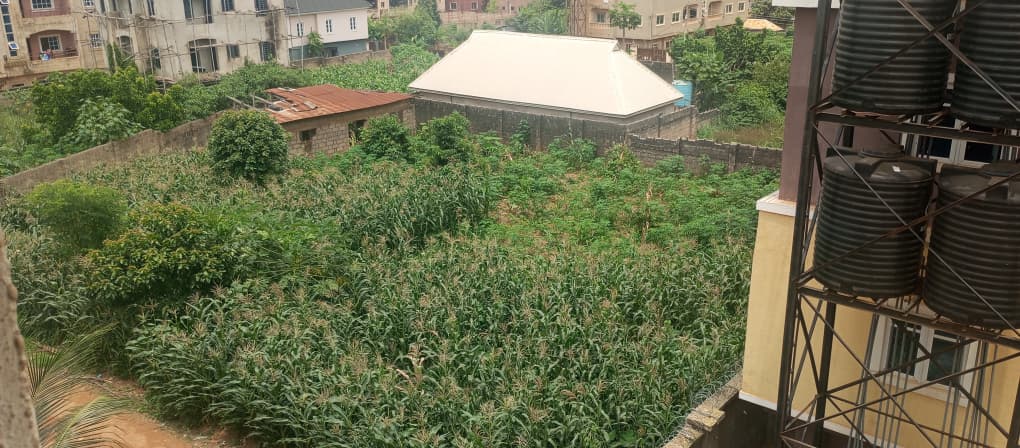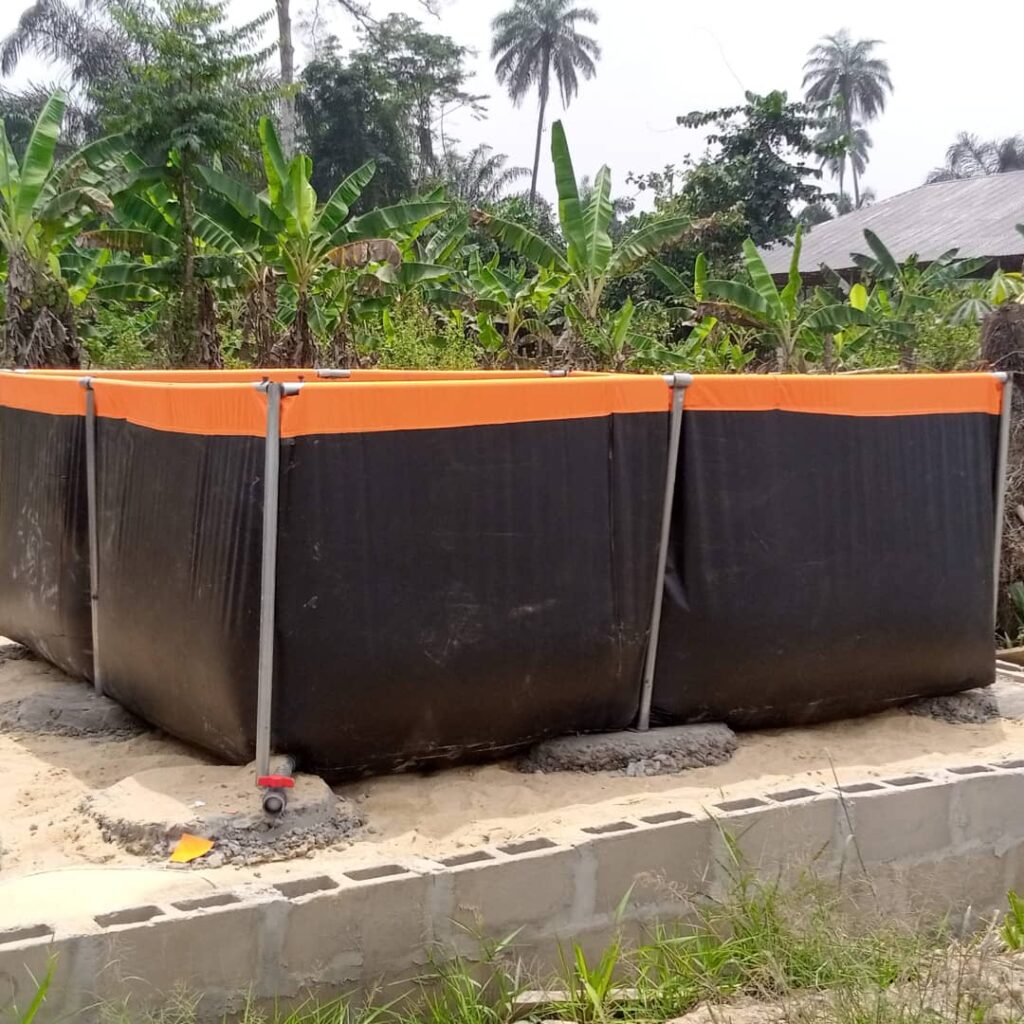The Disappearing Farmlands: how urban expansion threatens food security and medicinal plants
The rapid expansion of cities is swallowing up fertile farmlands, threatening the very foundation of human survival. As urbanization accelerates, agricultural production is dwindling, and food prices are skyrocketing, exacerbating food insecurity. The loss of farmlands not only affects the availability of food but also imperils the preservation of cash crops and medicinal herbs and plants that are essential for human well-being.
By Precious Nwonu
ENUGU – In the heart of Nigeria, where the land once flourished with vibrant crops and medicinal herbs, a stark reality is unfolding. Urban expansion, fueled by rapid population growth and economic development, is swallowing up fertile agricultural land, pushing food production further away from the people who need it most.
In Enugu State, an area called “One Day” was once known for its rich farmlands, where different food crops were cultivated. It was especially famous for producing fresh vegetables like pumpkin leaves (Ugu), which were widely grown and supplied to local markets. Today, all that has disappeared.
A crop and poultry farmer in Enugu, Emeka Okafor, lamented how most lands in the city are being sold for house development, making it difficult to get lands for farming. “Most of the farmlands around here have been sold for housing estates. It’s now difficult to find large, affordable land for farming, and even where land is available, it’s expensive,” he laments.


Grace Ekong, a vegetable farmer in Uyo, Nigeria, described the harsh reality: “Urban expansion has pushed us farther from the city, making transportation of our produce more costly. The lands that remain are often not suitable for farming.” Her words echo the sentiments of many farmers who are struggling to make ends meet.
As cities grow, farmlands shrink. In Ibadan, the city’s built-up area expanded from approximately 40 km² in the 1950s to about 400 km² by 2000, consuming lands previously used for agriculture. In Abeokuta, urban expansion led to the loss of about 72.6 km² of rural farmland between 1966 and 2016.
The impact of urban expansion on food security is profound. In Lagos State, for example, rapid urbanization has led to the state producing less than 20% of the food consumed within its borders, relying heavily on supplies from other regions and countries.
A Real Estate Developer, Engr. David Okeke, attributed the issue of lack of farmlands to economic development. He said: “Economic development plays a key role. The need for industrialization, business hubs, and real estate projects often takes priority over farmland, as urban expansion is seen as a sign of progress.”
In Calabar, the built-up area increased from 12.7% in 2003 to 16.3% in 2018, leading to the conversion of agricultural lands into urban developments.
In recent years, the rapid development of residential buildings has significantly affected farming activities. The once-thriving farmlands are now disappearing as more houses and structures take over the area. It has become increasingly difficult to find farmland, and even when one appears, it is often replaced by buildings within a few weeks. This shift has not only reduced food production in the area but has also impacted farmers who depend on agriculture for survival and the protection of herbal plants.
The Impact of Urban Expansion on Food Security
Urban expansion in Nigeria significantly affects food production by reducing the amount of land available for agriculture. As cities grow to accommodate increasing populations, they often encroach upon fertile farmlands. A fish farmer in Kano, Fatima Yusuf, narrated how the impact of urban expansion has affected her poultry business: “Before, I had enough space for my fish ponds, but now, with new buildings and roads, water sources are getting polluted, it made me have less space for my business and I had to close down the business.”


For instance, in Makurdi, Benue State, urbanization led to the loss of approximately 200 square kilometers of agricultural land, accounting for 19% of the total land area, between 1976 and 2013. Similarly, in Calabar, Cross River State, the expansion of urban areas has resulted in a notable decrease in agricultural lands, adversely impacting local food production.
This urban growth not only reduces the physical space for farming but also contributes to a decline in soil fertility. In Ado-Ekiti, Ekiti State, the city’s expansion has led to the depletion of agricultural lands, which in turn has diminished soil quality and reduced crop yields. Farmers in these areas face challenges such as unpredictable rainfall patterns, pest infestations, and heat stress, all of which are exacerbated by the pressures of urbanization.
Farmers are facing numerous challenges, including unpredictable rainfall patterns, pest infestations, and heat stress, all exacerbated by the pressures of urbanization. Fatima Yusuf, a fish farmer in Kano, narrated how the impact of urban expansion has affected her business: “Before, I had enough space for my fish ponds, but now, with new buildings and roads, water sources are getting polluted… I had to close down the business.”
The migration of young people from rural to urban areas in search of better opportunities has led to a shortage of labor in the agricultural sector, further decreasing agricultural productivity. Ebuka Ezike, a food crop farmer in the east, complained about the difficulty in finding laborers to cultivate his farmlands: “It’s difficult these days to find labourers to cultivate on my farmlands, because most of them prefer other handy jobs or white collar jobs than farming.”
In Enugu State, the government has taken steps to address the issue. The state government has earmarked N2 billion in the 2025 budget for the Smart Farm Estates initiative, aiming to harness its rich agricultural resources to create employment, ensure food security, and drive economic growth.
However, more needs to be done to protect farmlands and promote sustainable agriculture. Policymakers must make strong rules to control urban expansion, set aside areas for farming, and encourage farmers to keep their land. Farmers must also adopt better farming methods to grow more food on smaller land, reducing the need to expand into new areas.
As Anthony Ubaka, a landowner in Enugu South, aptly put it: “Government needs to create clear zones—areas strictly for agriculture and areas for development. They should also give incentives to landowners who choose to keep their land for farming, maybe through tax reductions or support programmes.”
The fate of Nigeria’s farmlands both for medicinal purposes and food consumption hangs in the balance. Will policymakers and farmers work together to protect the land, or will the pursuit of economic development come at the cost of food security and medicinal herbs? The clock is ticking.





Comments